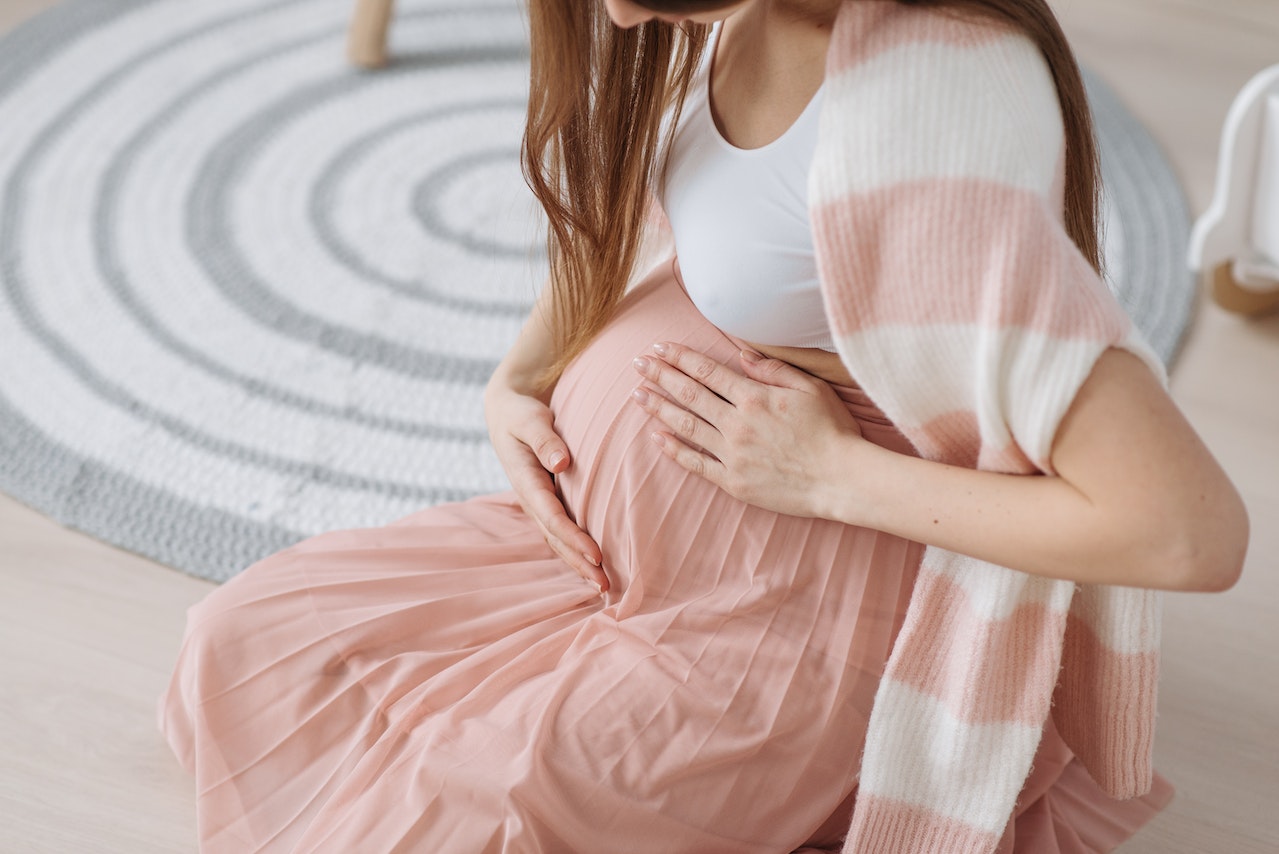Why Do I Have Constant Hard Stomach at 38 Weeks Pregnant
Pregnancy can come with its fair share of pain and discomfort. Mothers will experience many symptoms, ranging from mild to severe. And one of the most hard-hitting times during pregnancy has to be your third trimester.
Many parents can agree that the third trimester is the hardest part of pregnancy, especially once you are creeping closer to labor. From sleep deprivation to swelling hands and feet, many mothers want to get things over with and have their babies in their arms already!
Discomfort around the belly area is a complaint many mothers have, especially near labor. But where are these pains coming from?
What to Expect at 38 Weeks Pregnant?
At 38 weeks pregnant, your due date is right around the corner. You must be experiencing a range of emotions at this point, from anxiety to excitement. And almost anything you do, your brain automatically thinks it is a sign that your baby is coming.
You will be experiencing symptoms that can vary from bearable to painful to the point of hair-pulling. You may have to deal with gut problems like constipation, nausea, and indigestion. Heartburns are also a likely candidate. And why not sprinkle in back pain, pelvic pain, frequent urination, and swelling.
You may also lose your mucus plug around this time. As gross as it sounds, your cervix relies on this mucus for protection against bacteria and infections. But this is not a sign of labor to come since this can happen a few hours, days, or weeks before your baby arrives.
Speaking of which: Your baby must be in a head-first position by this point. If your baby is not yet pointing their head downwards to your pelvis, it is crucial that you talk to your doctor and ask them to help move your baby into the correct position.
Your baby is at their heaviest inside your womb, with weight ranging from 6 to 7 pounds and a measurement of between 18 to 20 inches. Weight and size vary from baby to baby since some can be born bigger or smaller than average but are still considered healthy.
Why Do I Have Constant Hard Stomach at 38 Weeks Pregnant?
One crucial symptom many parents experience during their third trimester is contractions. Contractions can happen as early as your fourth month of pregnancy. But these false labor contractions, called Braxton-Hicks contractions, are less painful and infrequent than the real deal.
These Braxton-Hicks contractions can make your stomach feel hard since they are concentrated in your abdomen. They do not increase in intensity as time goes on, and they will go away on their own eventually. Braxton-Hicks contractions are triggered when you feel exhausted, dehydrated, or overworked.
On the other hand, true labor contractions are harder to ignore because they stay for longer, become more intense, and happen consistently. These contractions are not solvable by drinking a glass of water or lying down on the sofa. These contractions are meant to dilate the cervix.
How Will I Know the Difference Between False and Labor Contraction?
Braxton-Hicks contractions are different from labor contractions. These false contractions happen more frequently throughout pregnancy, and many mothers might mistake them as a sign of their due date coming.
However, Braxton-Hicks are not as severe and long as labor contractions. Many moms compare these contractions to a mild menstrual cramp. And unlike labor contractions, they can be remedied at home.
For many new mothers, it can be hard to determine if you are feeling Braxton-Hicks contractions, especially with all the other symptoms piled on top of you. Fortunately, it is not hard to spot.
For starters, Braxton-Hicks are not as painful as labor contractions. Labor contractions are intense. And what’s relieving about Braxton-Hicks contractions is that they go away eventually, whereas labor contractions don’t.
Braxton-Hicks are also triggered by something, such as feeling tired or dehydrated. Even the most pampered and well-rested mothers can feel the pain of labor contractions.
Finally, Braxton-Hicks contractions are sporadic and do not have a pattern. With labor contractions, you can time these with a stopwatch, and you will most likely get a consistent result.
It is possible that what you are feeling at week 38 is only Braxton-Hicks contractions. However, you may want to phone your nearest hospital if you experience more than four to six contractions in an hour.
How Do I Ease False Contraction Pains?
Braxton-Hicks contractions are not as painful as the real deal, but they can still make you feel sick and uncomfortable. Unlike labor contractions, you can remedy Braxton-Hicks contractions at home through easy steps.
As mentioned above, Braxton-Hicks are triggered by dehydration and fatigue. But they can also result from an illness, your baby moving, or strenuous activities. So what can you do to ease the discomfort?
The first step is to always grab a glass of water. Dehydration is no laughing matter, and not drinking enough can lead to more uncomfortable symptoms. Drinking water also helps your baby by increasing the amniotic fluid levels within your womb.
If you feel exhausted, look for your nearest couch or bed and nap. Rest is another sure way to get rid of Braxton-Hicks contractions and provide you the strength to continue the rest of the day. Plus, a change in your sitting or sleeping position can help immensely.
Finally, do some relaxing activities, like walking, taking a warm bath, or getting a massage. These activities can release tension from your body and get your false contractions. Besides, who does not want to get spoiled every now and then?
Braxton-Hicks contractions can go away on their own. But there is no harm in using home remedies to comfort yourself and speed up the process.
FAQ
What are Braxton-Hicks contractions?
Braxton-Hicks contractions, also known as false contractions, are brief, painless, and infrequent tightening of the uterus. Unlike labor contractions, these do not last long and can be remedied at home.
What should I be doing during the 38th week of pregnancy?
As your due date comes closer, you can take this time to plan how your hospital trip is going to be. You may also contact your family for moral support and settle your maternity leave.
How do I tell the difference between false and true contractions?
False contractions are less painful than true contractions, and you can get rid of them through home remedies. True contractions also follow a steady pattern most of the time.










